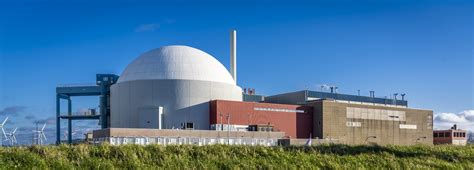Im Rahmen der transnationalen Konsultationen zu Neubauten von AKWs in den Niederlanden hat das Nationale Aktionskomitee gegen Atomkraft folgende Stellungnahme formuliert:
Luxembourg, 26th March 2024
Concerning the transboundary consultation published by the Luxembourg Ministry for environment in relation with the proposed construction of new nuclear power plants in the Netherlands at the sites of « Borssele » and « Maasvlakte I », Nationalen Aktiounskomitee géint Atomkraaft Luxembourg would like to make the following comments.
There is inconsistency between the Dutch government goal of a carbon-neutral electricity production in 2035 and the sentence “Nuclear energy can deliver an important contribution to that objective”.
The Dutch government indicated that new nuclear power stations will deliver power in the second half of the next decade. Optimistic estimates assume that a first reactor could be connected to the grid in 2037, followed by a second in 2039. Given the high cost of nuclear energy, this project furthermore has a high risk of failure. This inconsistency illustrates that the intentions from the Dutch government are surrounded with a lot of uncertainties. In this case, it should be presumed that the priority of the Dutch government should be in reaching the 2035 targets, which obviously can only be met with really clean, sustainable energy sources, in which nuclear power plays no role. Or, and that would be in the view of the urgency of climate change very problematic, the Dutch government now builds in a lock-in into the use of fossil fuels until after the date of 2035.Taking different things together, the conclusion is that attention for nuclear power distracts the attention from urgent climate action.
Zero-option – To reach good decisions, the Aarhus Convention requires public consultation when all options are open (art. 6(4)). The Maastricht Recommendations to the Treaty further describe that this means that the zero option must also be included in public consultations[1].The Dutch Environmental Act also prescribes this in art. 5.49b (a solution without project). This makes sense, because only in this way can decisions regarding the justification of projects be made in a way that is optimal (not maximum!) for the population, environment and economy. The memo submitted to the transboundary consultation in Luxembourg does not include a zero variant, which, based on the Dutch government’s objectives (complete decarbonisation of the electricity system in 2035), describes how this will be achieved, what efforts are required for this, and what effects this will have on the locations discussed (this concerns, as indicated in the TenneT report, landfall of off-shore wind power, hydrogen and ammonia production, etc.), and what the situation would look like without the construction of nuclear power stations.
The Dutch coalition agreement of 2021 that wants to keep the existing NPP longer in operation and prepare for two new NPPs, can legally only be seen as an intention, not a decision. However, in the documentation submitted, the National Plan Energy System and other documents, this is treated as an irreversible decision. There was no public participation about that decision, as should have happened under Aarhus art. 7. This implies that the real decision on nuclear energy is still open option (on the basis of Aarhus art. 6(4)). For that reason, it is incomprehensible that the zero-option is not taken up in this procedure and others (incl. the National Plan Energy System, deliberations with the municipality of Borssele, the Province of Zeeland and others) as equivalent possibility.
Feasibility studies – The Dutch government has commissioned (and financed) feasibility studies from three potential technology suppliers, who have a major interest in being presented in the most positive light possible in order to have a chance of winning a monster contract. This can only result in advertising documents. The Dutch government then wants “The information provided by these studies will be used as much as possible in the environmental impact reports and the integrated effects analysis in the project procedure”. This means that the EIA and IEA will not be based on objective information, but on advertising material. This is unprecedented and unacceptable. Of course, technology suppliers can provide information, but independent comparative and additional research must take place before such information can play a role in an EIA and IEA in the project procedure.
Assumptions – It is explicitly stated that other solution directions (such as alternative electricity generation) are not part of this exploration. This is a fundamental shortcoming that must be corrected on the basis of the obligation to include the zero variant. The “solution” must therefore be formulated more broadly and must not only be limited to indicating a location, but must also include the argumentation for the zero option.
Nationalen Aktiounskomitee géint Atomkraaft Luxembourg herewith want to inform you that it is opposed to the construction of new nuclear power plants in the Netherlands as there some fundamental information missing in this transboundary consultation. Furthermore, in case of an accident, the territory of Luxembourg could be impacted.
Yours sincerely,
[1] UNECE, Maastricht Recommendations on Promoting Effective Public Participation in Decision-making in Environmental Matters prepared under the Aarhus Convention (2014), par. 16, 19, 78 and 162
